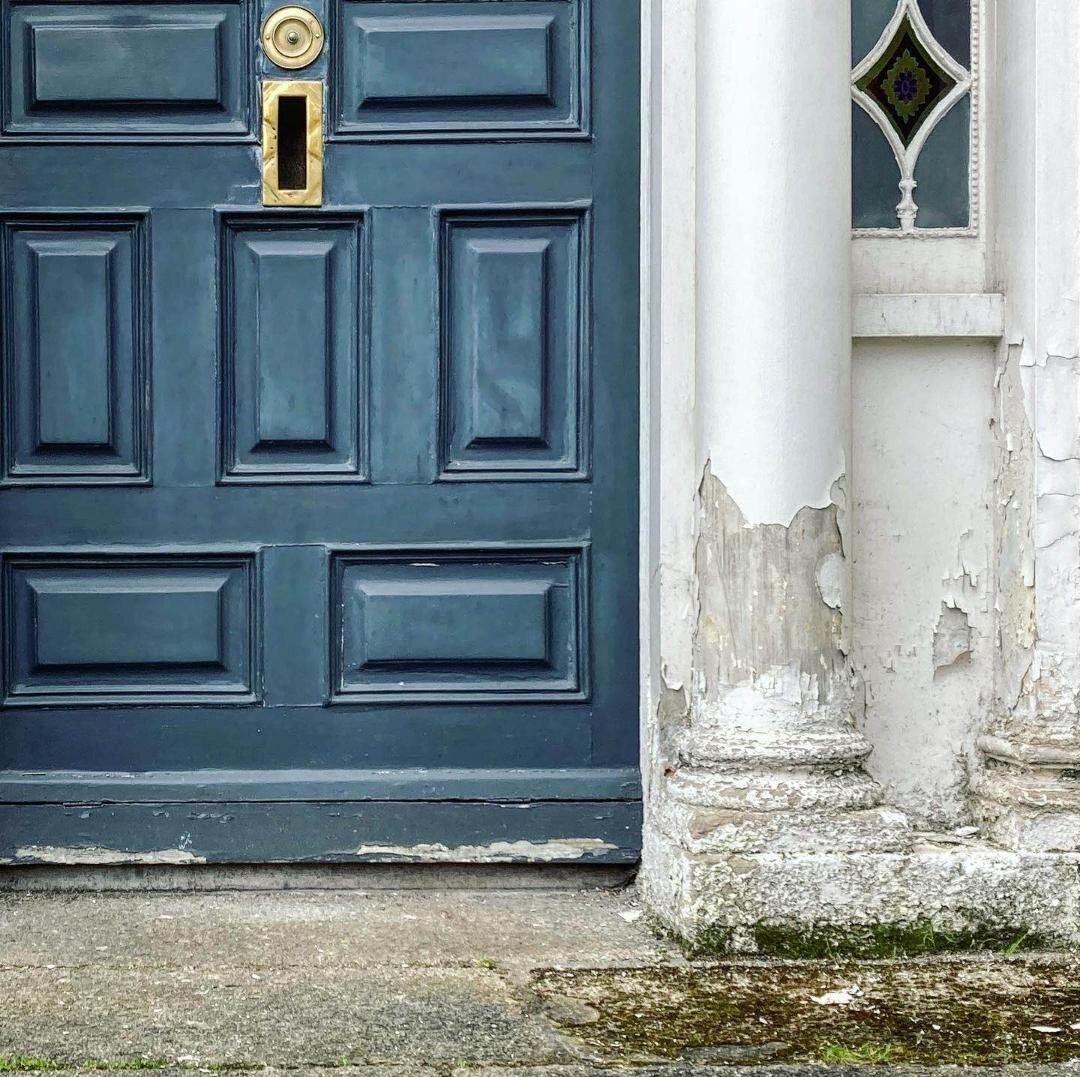There is a change in the air. It feels different. The forest floors have ruptured into their first wave of growth, tickling the roots of trees into waking up and yawning across crackled leaves and withered lichens. This reminds me of opening the old bedroom shutters, light flooding across the hand-knotted forest carpet. Bright yellows and white anemones between the first spikes of bluebells and trunks covered in electric moss. The black muck of the pathways dries into a white powder dusting the cobbles protruding from a black muck grout. This morning, the whitened cobbles bubbling up from the black bumped my mind back to a place I found recently when visiting the city. I was deliberately too early for my appointment, so that I could have a walk in the city for a change of scene; and it was there next to a closed scaffolded site that I noticed a house for sale. I am not looking for a house and could not afford even the front door of this particular house, but there was something about it.
Before I was aware of what I was doing, I found myself peering through the hole where the letter box had been. I imagined some estate agent in a mask showing a potential purchaser around, and closing the door by the letterbox flap, he had broken it from the old door. I could see that the old brass letterbox was newly broken, and in a way this confirmed my theory. I was afraid to touch the twelve panels of the pigeon-grey door, as I am afraid to touch anything during this pandemic. The vapours of hand-sanitiser wafted from my hands. The Georgian square was empty. Complete silence, no traffic, no pedestrians, no aeroplanes and nobody shouting into a mobile phone about their mundanity. A robin had recently landed in the garden, and it had allowed me to stroke it’s back for a few minutes; and I felt this beautiful empty old house was allowing me the same intimacy. Looking with one large eye through the hole where the letterbox was, I could see a long high-ceilinged hallway. The floor was smattered with Victorian checkerboard tiling, similar to the blacks and whites of the woodland cobbled path this morning. A similar smell of damp to the early morning woodland.
The cobbled pathway was an addition to the woodland, and I imagined the person who may have added tiles to the old Georgian hallway. Possibly it was the same person who added the stained glass doors to the half-landing I informed myself. Following the staircase as it disappeared from view, I saw the ceiling. The acanthus plaster rose looked like a frozen octopus inverted to a silty-grey seabed. The door furniture told me that a doctor had once lived here, perhaps a few doctors with the same name, as the brass plate was thick and worn away around the heavy lettering. I wondered was it the first doctor of this imagined medical dynasty that had installed the floor tiles and stained glass, or the second one? The white paint of the door frame was peeling off onto the old granite steps, the smell of damp blowing from the letterbox hole made me look away and up at all the storeys above reaching to the clear skies. Each storey had different windows panes; one over one; nine over nine. The massive balcony ironwork had snapped the window sills and these were cleaving out from the façade and poised over the hall door like a barrel of hot tar over a portcullis. Some windows had vertical blinds, some had knickknacks accumulated on the sills as if in some discussion about what they were going to do next. I surmised that these were possibly discarded by house clearance dealers who had packed up decades of detritus for sale in anonymous white lorries. The underside of the sills were caked in old soot; from all the fires that heated the city over centuries. I imagined the serene grandeur of this house, all the possibilities of it in its present form. The unexplained noises it would possess and the eccentricities of living in such a place today. The foibles of the place and the disregard developers will show to a place that held a medical family for a century and all those that came before them. I wondered if the letterbox whistled. I looked at the mews to the rear and imagined these as an artist studio, and solid gates to keep everybody out. For half an hour I imagined what I would do to create a home there, a studio, a subtle restoration, to be anonymous within the city. As I walked the woodland today and relived that experience, I felt a warmness at the hope for that building. The next time I walk past it, the letterbox may be fixed.
